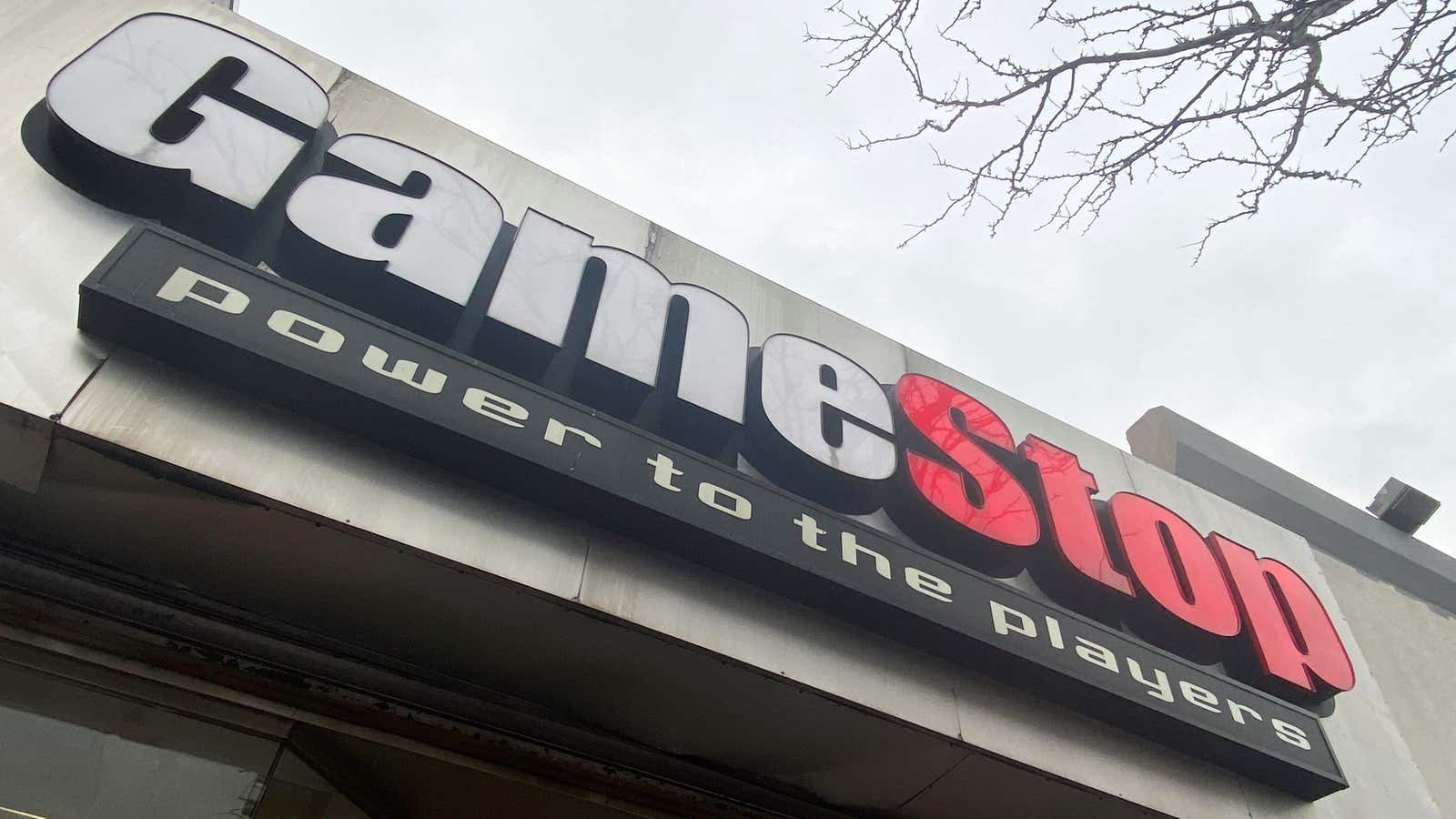The video game retailer GameStop is reportedly getting into the nonfungible token (NFT) business. The company has hired 20 people to develop and launch an NFT marketplace for video games and strike cryptocurrency deals with video game studios and publishers, the Wall Street Journal reported on Jan. 6. GameStop shares rose 23% in premarket trading.
It’s the latest boost since GameStop’s shares first went on an unprecedented rally in January 2021. Meme traders on WallStreetBets, a community on Reddit and Discord, pounced on the stock and sent it soaring, squeezing short-sellers as it climbed from $17 a share on Jan. 8 to $325 by Jan. 29. For the financial world, the drama demonstrated the power of retail investors coordinating online who boosted companies’ shares they felt had been pushed too low by short-sellers.
For GameStop, the prototypical “meme stock” on Wall Street, the new attention and cash meant it faced pressure to reveal how it planned to update its business to compete in a digital economy. GameStop has long promised a digital transformation without disclosing many details about what that entails. The company hired Amazon executives and built new fulfillment centers, but has not yet overhauled its brick-and-mortar business into an overnight e-commerce powerhouse. Video game consoles still rely on physical disks and cartridges, even though downloadable content has become much more popular, and GameStop lets customers trade them in for store credit, one of its main draws.
It’s now clear that at least part of GameStop’s digital transformation has to do with crypto, but first GameStop will need to convince gaming companies and gamers themselves to buy in.
Do gamers want NFTs?
The gaming industry at large is still grappling with the role that crypto should play. While play-to-earn online games like Axie Infinity are major drivers of NFT transactions, and gamers often buy in-game virtual goods like Fortnite “skins,” many gamers aren’t convinced they are the future of gaming.
In December, video game company Ubisoft launched an in-game NFTs marketplace (unrelatedly called Quartz), but received significant pushback from gamers who felt the NFTs were pointless and trend-chasing. The game STALKER 2 recently received similar pushback, prompting it to scrap its NFT plans. The PC gaming hub Steam fully banned blockchain-based games because it doesn’t allow virtual goods with “real-world value.”
Beyond convincing gamers, the biggest challenge for GameStop’s NFT business will be securing permission from video game publishers to resell their crypto assets, Wedbush analyst Michael Pachter said. “In the event that publishers allow NFTs to be resold, which is likely as a metaverse develops, the right question is, ‘Why GameStop?'” Pachter said. “It is far more likely that publishers will create their own stores for NFTs and allow the NFTs to be taken to other games and to be resold.”
